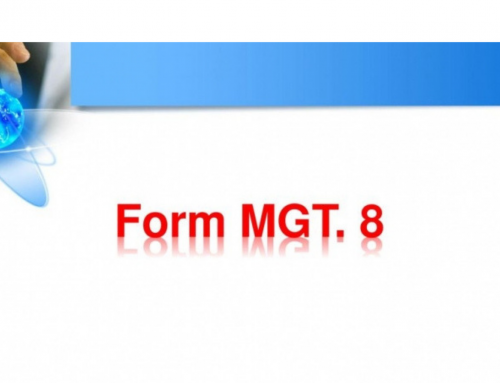What is a Brand?
Contents
- What is a Brand?
- Brand registration
- Some of the Examples of Brand registration
- Who is eligible for Brand registration?
- What function does Trademark perform?
- Types of Trademark
- What are the documents required for a Brand registration application form in India?
- What is the process or steps to get registered your Brand in India?
- Step 1. USE OF TRADEMARK SEARCH
- Step 2. CREATE TRADEMARK APPLICATION
- Step 3. TRADEMARK REGISTRATION
- What are the advantages of Brand registration in India?
- Exclusive rights
- Security
- Intangible Property
- Licensing
- Assignment
- Deterrent
- Use in Proceedings
- Right to use ®
- Foreign Territories
- Counterfeit Goods Act 1997
- Cost for Trademark Registration
A Brand refers to the product, service or any concept that is publicly be identified out of the other products, services or concepts so as to communicate and market easily. It is a distinctive product, service or any kind of concept. Whereas Branding is the process of creating and disseminating the brand name. It is applicable to the entire corporate identity as well as to individual product and service names. In this article, we will provide you with the complete Guide of Brand registration.
Brand registration
Any symbol such as word signature, name, device, label, numerals or combination of colors used by an owner of the brand for selling goods or services or other articles of commerce to distinguish it from other similar goods and services which are originating from different businesses is a logo which represents your business.
A brand registration can be of a word, symbol, logo, brand name, wrapper, packaging labels, tagline or a combination of these. Anything which is used by manufacturers or service providers to identify their own products or services and distinguish the owner’s product or service from those of its competitors is a brand registration.
It is registered by the Controller General of Patents Designs and Trademarks, Ministry of Commerce and Industry, Government of India. Brand registration is governed under the Trademark Act, 1999 and allow the brand owner the exclusive right to sue for damages when infringements of trademarks occur. In case of deceptively similar to an existing registered brand or trademark for which an application has already been made cannot be registered.
Trademark search is very helpful to prevent such confusions. An applicant must do research on Trademark search just to ensure that the brand name which he/she is going to be used in future is already registered or not. If not, then he/she may apply for it.
Some of the Examples of Brand registration
If we talk about the beverages then the first two names strike in our mind are Coca-Cola and Pepsi that belongs to the same industry and can be distinctly identified out of many beverages as well as they are the indication of quality. Likewise, dairy milk and KitKat is a trademark in the same industry.
Who is eligible for Brand registration?
Any individual, Company, Proprietor or legal entity claiming to be an owner of the trademark is eligible for this Trademark application. It can be filed in very fewer days and you can start the usage of “TM” symbol soon. All the formalities of Trademark registry take only 18 to 24 months. Once the trademark is registered and registration certificate is issued then you can use the registered symbol “®” next to your Brand or Trademark. After 10 years from the date of Trademark filing, it needs to be renewed.
What function does Trademark perform?
Following are the functions of Trademark or Brand registration:
- Through registration, the product or service can easily be identified along with the source.
- Quality is Guaranteed.
- The powerful tool for advertisement of service or product.
Types of Trademark
Following are the types of Trademark or Brand registration:
- It could be a Name whether a personal name or a surname or the signature of the person.
- Any invented word or coined word.
- Numerals/Letters/Alphanumeric or any kind of combination
- Any Image/symbol/monograms/3 dimensional shapes, letters etc.
- Sound marks in audio format.
What are the documents required for a Brand registration application form in India?
Every application whether it is a Patent registration or a copyright registration needs certain documents for filing an application form in India. These documents are given below:
- A copy of Logo or a trademark.
- Goods or services to be registered.
- A specific date on which that trademark is used (In case you are using it prior to applying).
- Power of attorney to be signed by the applicant.
What is the process or steps to get registered your Brand in India?
There are basically three steps involved in the process of Brand registration in India:
Step 1. USE OF TRADEMARK SEARCH
This Trademark search is meant to free of cost to check if your business name or logo is similar to other trademarks which are already registered. Usually, the agent of trademark or attorney conducts this search with the Trademark Office to check whether there are any similar trademarks which are registered under a specific class or not. Mainly, two kinds of search are available: Online and Offline. If you do both then it is the best. It takes only one working day to search trademark. When you get sure then your brand is or trademark is unique then you can proceed further.
Step 2. CREATE TRADEMARK APPLICATION
It takes only one working day to draft an application by the trademark attorney provided that your logo found to be unique. In addition, if your brand name found already registered then you need to change yours. If you are sure that the trademark is 100% unique and you are using it from so long, even before another party trademark registration then you may start using “TM” symbol as soon as you file the form of a trademark application.
Step 3. TRADEMARK REGISTRATION
It takes around 18 to 24 months to get the registration done. In this process, the trademark office will first check your application to see if it is already been taken. If it has no objection then it makes an advertisement in the Trademarks Journal. When there is no opposition from other businesses in the next four months then your trademark is registered around six months later.
What are the advantages of Brand registration in India?
Even the biggest businesses such as coca cola, Siemens, Apple protect also their business by means of a trademark. Following are the advantages of taking a trademark in India:
-
Exclusive rights
The Trademark Act gives the exclusive rights to the proprietor to use the mark in respect of the goods or services covered by it. The powerful remedies against unauthorized use make the registration important. A Proprietor can sue for infringement as well as obtain very powerful remedies like interdict, delivery up infringing articles and damages.
-
Security
One thing that must be known to you is that the trademark registration in India can be hypothecated as security. It means a registered trademark can be pledged as security to secure loan facilities much the same way as immovable property can be bonded.
-
Intangible Property
One of the benefits of trademark filing is to create an identifiable intangible property in the legal sense. Registration of Trademark is a value store of goodwill or reputation that a product has.
An unregistered trademark will never have a separate and independent existence, it will always form part of the goodwill and it will always be attached to the business. So, the only way to acquire a common law trademark is to acquire the business as going concern. A trademark registration can be transferred like any other asset of course owned by a person or a company.
-
Licensing
Of course, the registered trademark can be Licensed. Besides, it is recorded on the trademark register that the rights are being given to the licensee to institute legal proceedings in the event of infringement.
-
Assignment
Yes, a trademark can be transferred and it is not possible for a common law trademark that can only be transferred with the business.
-
Deterrent
It deters other traders from using trademarks that are similar or identical to yours in respect to goods or services like yours. You put others on notice of your rights by using symbol ®. However, a registered mark can be found when others search the official register before choosing to commence using a certain name.
-
Use in Proceedings
A trademark registration is a prima facie evidence of the validity of the registration thus the rights conveyed by registration only. According to legal proceedings, a person is registered as the proprietor of the trademark is the evidence of the validity of the original registration of the trademark until and unless the contrary is proved.
-
Right to use ®
As soon as the trademark is registered, you can use the symbol ® or R or the word “Registered” for the goods and services listed in the registration.
-
Foreign Territories
The registration is used on a basis to obtain registration in some foreign countries, facilitating protection of the brand worldwide as the business expands.
-
Counterfeit Goods Act 1997
A trademark which is registered empowers the customs authorities at South African ports of entries to prevent the importation of counterfeit foreign goods. The proprietor of an intellectual property right is afforded by the Counterfeit Goods Act. With the interest in goods bearing or representing such rights to take civil or criminal action against a person or company that is involved in counterfeiting.
Cost for Trademark Registration
If you want to get a trademark registered with the help of Legal Raasta then following will be the cost described step by step:
- First and the foremost process of trademark registration is trademark search which is free of cost.
- Secondly, trademark consultancy on class and availability is totally free of cost.
- Government fees will be Rs. 4500/-
- You have to pay GST Rs. 270/-
- For “TM application filing” and “drafting,” our fees will be Rs.1,499
The overall cost of brand registration is Rs. 6,269.
For further more information regarding International Trademark registration or Trademark search or more, you can go through our website: LegalRaasta. Our experts are available at 8750008585 to guide in the best possible way. You can also send your query on Email: [email protected].
Related Articles:
What are the different types of trademark infringement?
How to get Trademark Rectification
Classification of Goods and Services under Trademark Registration



